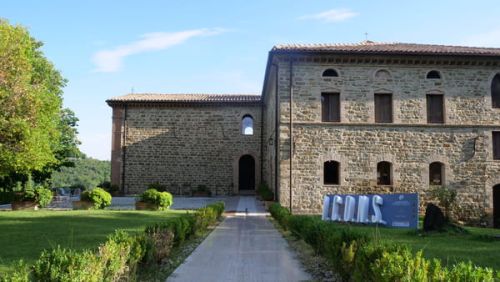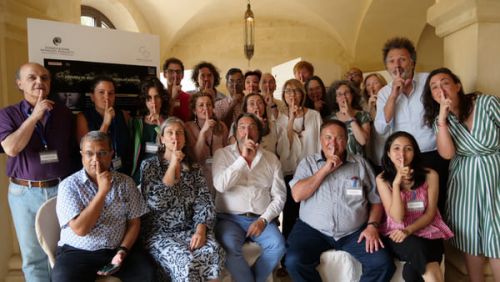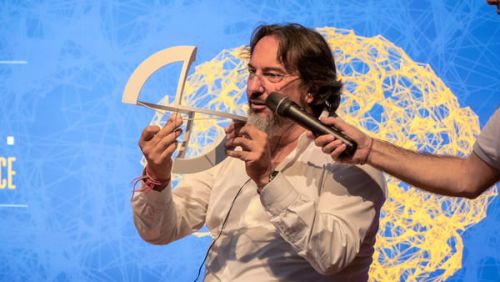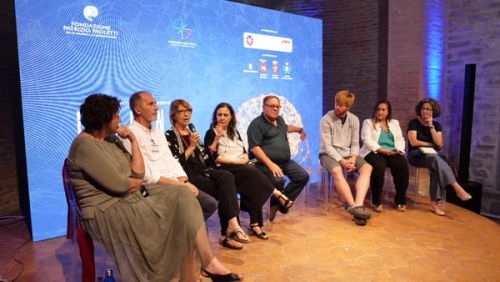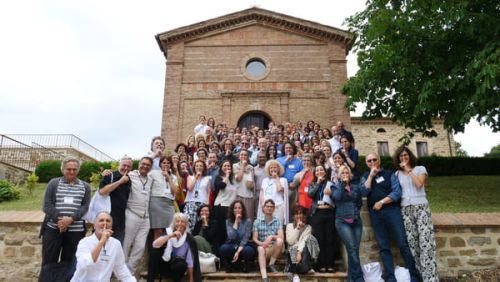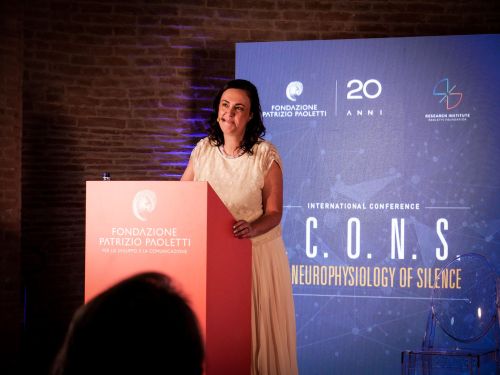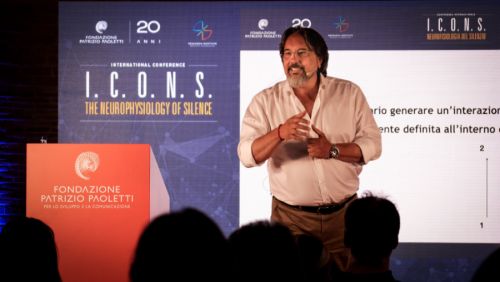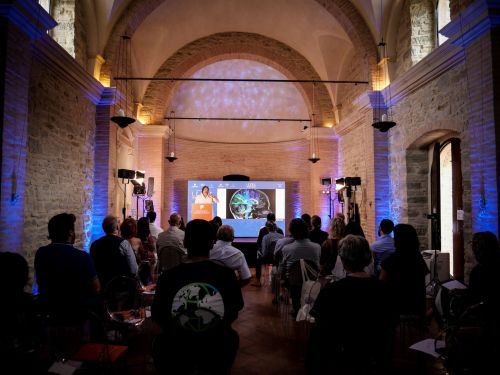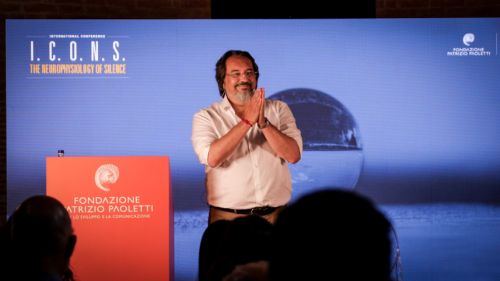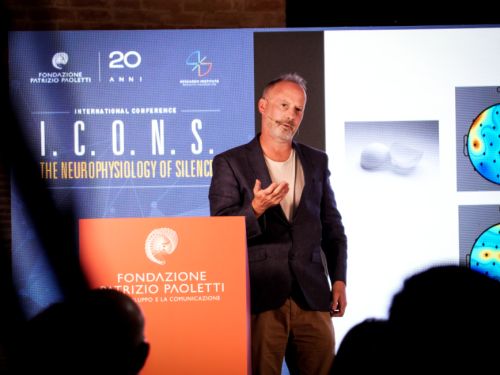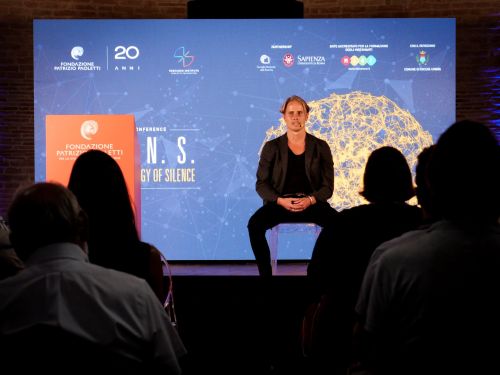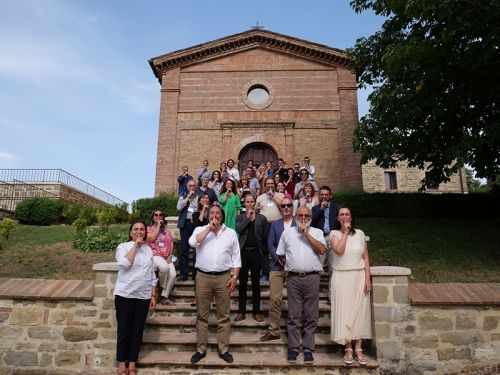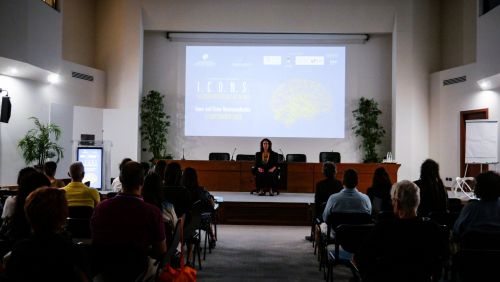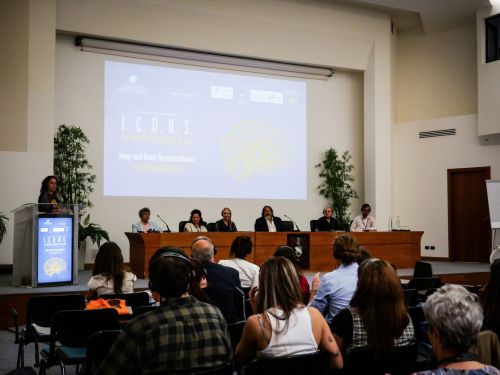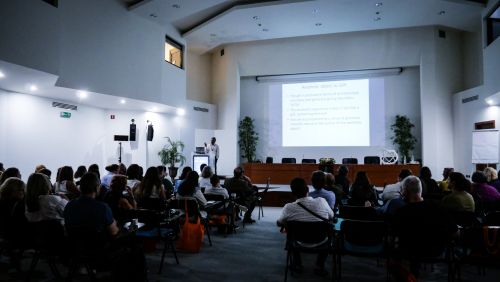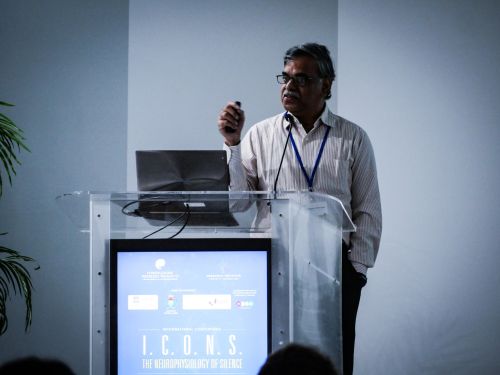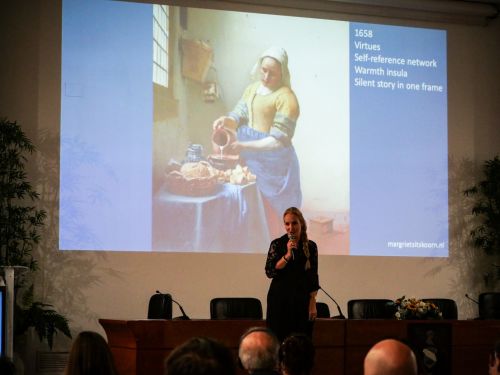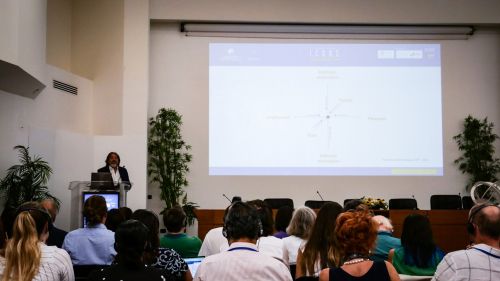





Moving towards: Peace
20 September 2024,
San-Biagio Monastery
Nocera Umbra (Italy)
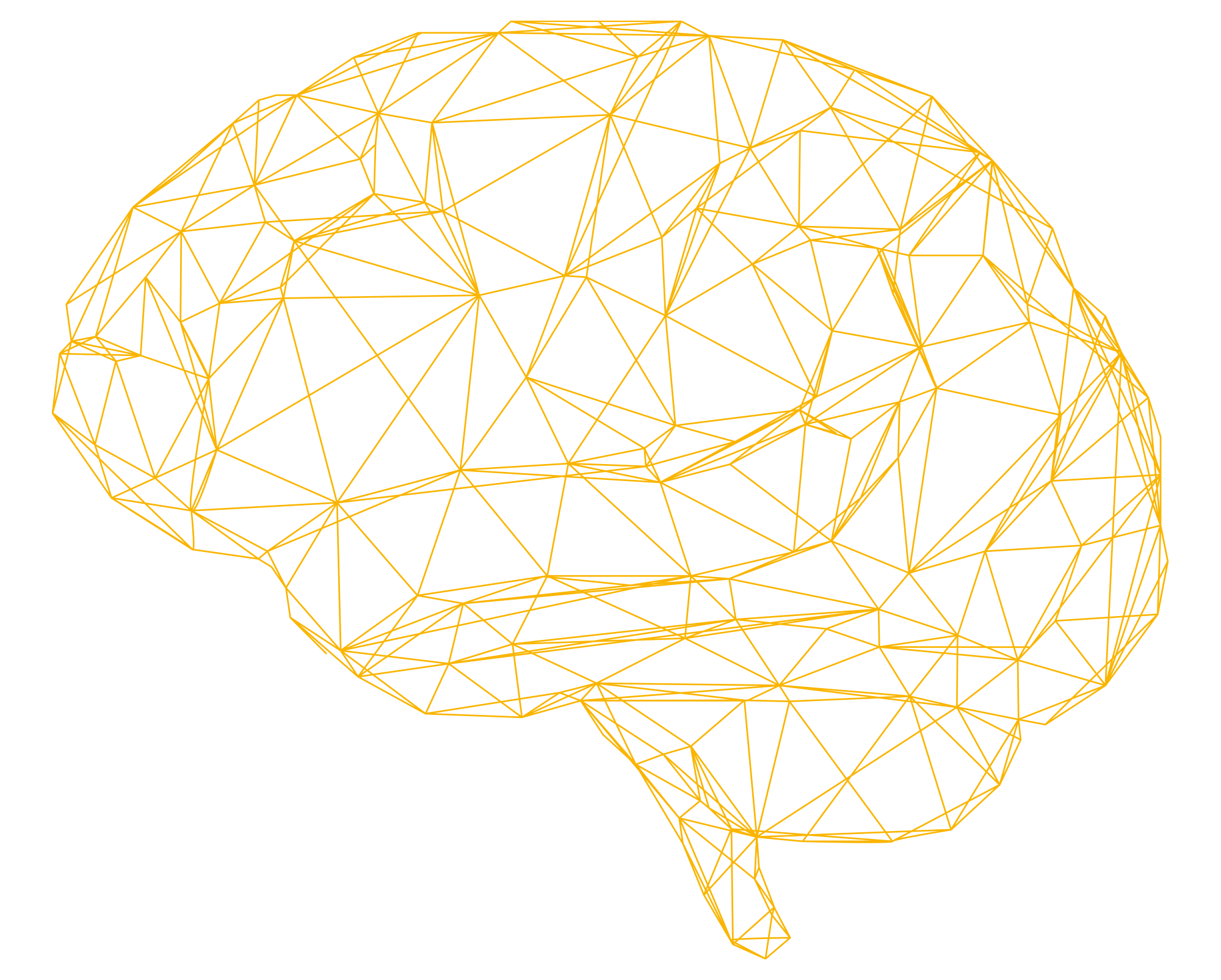
I.C.O.N.S. – Fourth Edition
Moving towards: Peace
The Research Institute for NeuroscienceThe human brain is one of the most complex and fascinating s... More, Education, and Didactics (RINED) of the Patrizio Paoletti Foundation proudly presents the 2024 edition of I.C.O.N.S., the International Conference on the Neurophysiology of SilenceSilence, often overlooked in the frenzy of modern life, is a... More. The conference aims to bridge diverse fields, from neuroscience and psychopedagogy to architecture and epigeneticsEpigenetics is a field of biology that studies changes in ge... More, examining how peace, inner narration and silence impact individual well-being and the environments in which we live.
Following the success of previous editions in 2019, 2021, and 2023, this year’s conference focuses into the interconnected themes of silence and peace, exploring their significance as both outer experiences and inner brain states.
The 2024 I.C.O.N.S. will feature topics such as the neurophysiological underpinnings of inner peace, the role of memoryMemory is a fundamental cognitive function that consists in ... More in fostering resilienceAccording to the American Psychological Association, resilie... More, the impact of social justice on executive functionsThe term 'executive functions' refers to a set of mental pro... More, and the transformative effects of movement meditationThere are many ways to define meditation, but perhaps the si... More on trauma and cognitive decline. We will take in consideration psychoneuroeducational perspectives of aging and development, tackling both sides of the developmental spectrum that are crucial for clinical, educational and psychological experts.
Moreover, discussions will extend to the role of architecture in cultivating peaceful spaces and the influence of silence as a tool for personal and collective growth in adversity.
By bringing together world experts from various disciplines, this conference seeks to advance our understanding of silence and peace as powerful forces in shaping a more resilient, conscious, and harmonious society. Through a combination of empirical research, theoretical exploration, and practical insights, I.C.O.N.S. 2024 will offer a comprehensive view of how silence and peace can be harnessed to enhance both personal and societal well-being.
SPEAKERS
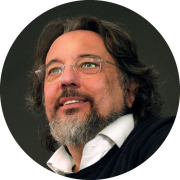
Patrizio Paoletti
RINED Research Institute
for Neuroscience Education and Didactics,
Fondazione Patrizio Paoletti, Italy
Patrizio Paoletti is the founder of the Research Institute in Neuroscience, Education and Didactics and the Paoletti Foundation for Development and Communication. Paoletti developed the Sphere Model of Consciousness, which has recently been considered the most advanced and elegant neuro-phenomenological model for consciousness. His research interests include the investigation of ‘consciousness-in-itself’, self-awarenessThe term self-awareness (sometimes used as a synonym for sel... More and its neurophysiological correlates; sensorimotor paradigms aimed at the development of attention and willpower capacities and their educational applications. Paoletti has created several techniques aimed at enhancing brain functions, including Quadrato Motor Training, a motor training technique that has proven beneficial in developmental disorders and neurodegenerative states. In the educational field, through his numerous teaching projects, Paoletti promotes a global approach to human development in terms of bodily experience, emotion regulation, and the enhancement of attention and self-awareness. The neuroscientific investigation of Paoletti and his Foundation aims at providing scientifically validated educational tools, addressed to different age groups ranging from children to adults, as well as to educational professionals and non-specialised audiences. The Paoletti Foundation’s vision takes the form of education for Peace and Awareness as indispensable values for the future of mankind.

Adele Diamond
University of British Columbia
Adele Diamond, PhD, FRSC is the Canada Research Chair Tier I Professor of Developmental Cognitive Neuroscience at the University of British Columbia (UBC), Vancouver, BC, Canada. A member of the Royal Society of Canada, she has been named one of the “2000 Outstanding Women of the 20th Century” and has been listed as one the 15 most influential neuroscientists alive today. She was educated at Swarthmore (BA, Phi Beta Kappa), Harvard (PhD), and Yale Medical School (postdoc). Her research focuses on the cognitive control functions collectively called executive functions, dependent on prefrontal cortexThe prefrontal cortex plays a fundamental role in numerous p... More, including the neuroanatomical, genetic, and neurochemical mechanisms that make those functions possible and how these functions are modulated by the environment. Her research interests include the roles of storytelling, dance, music, physical activity, and mindfulness in improving executive functions and academic and mental healthAccording to the World Health Organization, mental health ca... More outcomes. She has thought deeply and written about interrelations between cognitive and perceptual-motor development. In the field of education, her research is showing that focusing exclusively on training cognitive skills is less efficient, and ultimately less successful, than also addressing emotional, social, spiritual, and physical needs.
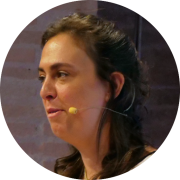
Tal Dotan Ben-Soussan
RINED Research Institute
for Neuroscience Education and Didactics,
Fondazione Patrizio Paoletti, Italy
Tal Dotan Ben-Soussan, Ph.D., is the director of the Research Institute for Neuroscience, Education and Didactics (RINED) – Paoletti Foundation. Ben-Soussan leads international studies on training and neuroplasticity from neurophysiological and psychobiological perspectives. As a neuroscientist and bio-psychologist, she has published numerous articles on the importance of movement and meditation for improving cognitive and emotional wellbeing. Her pioneering work on the Quadrato Motor Training had led to a significant understanding of the underlying neuronal and biological mechanisms mediating cognitive improvement following movement meditation, for healthy development and aging.
Ben-Soussan is fascinated by the topic of consciousness, enhancing cognitive functions and their electrophysiological and molecular correlates.
She has dedicated over 20 years to understanding the mechanisms of wellbeing in children and adults and applying them in different settings including schools, hospitals and the workplace. Ben-Soussan is part of the leading think tank of the School Mental Health International Leadership Exchange (SMHILE). Her recent review on the electrophysiological correlates of different states of the self, in relation to different types of meditation and higher states consciousness, emphasizes the importance of movement for accessing the embodied-self anchored in the here and now, while non-dual practices of transcending the self, allow a greater state of empathyEmpathy is a fundamental skill that allows us to connect wit... More and connectionConnection: the human need that precedes all technology Conn... More with the other, such as the Quadrato Motor Training and OMM One Minute Mediation, by Patrizio Paoletti. She acts as an editor and reviewer in several renowned journals and coordinates international conferences integrating theoretical, methodological and practical approaches on various topics, such as neuroplasticity, training and neuro-education. She has edited 3 books on the topic of silence in Frontiers in Psychology and Progress in Brain Research.

Sabrina Venditti
University of Rome “La Sapienza”
Dr. Sabrina Venditti, researcher at Dept. of Biology and Biotechnology “Charles Darwin”, Sapienza University of Rome (Italy). Dr. Venditti started her research in the field of DNA structure and topology, focusing on DNA alternative conformations of gene promoter regulatory elements. Subsequently she approached the field of gene expression and of in vivo analysis of chromatin configurations in yeast nuclei. In more detail, she focused on epigenetic molecular mechanisms that regulate the biology of important chromosome structures such as the telomeres, investigating telomeric position effects and subtelomeric elements dynamics. Since 2011, Dr. Venditti moved to the field of human neuroscience, with a specific focus on epigenetics, with the aim of elucidating the molecular mechanisms that mediate the effects of Quadrato Motor Training on creativity and well-being, in collaboration with Fondazione Patrizio Paoletti. Dr. Venditti is teacher of Molecular Genetics and of Elements of Epigenetics and Epigenomics at Sapienza University of Rome.

Angela Colonna
University of Basilicata
Angela Colonna is a researcher in History of Architecture and Landscape at the University of Basilicata, where she has directed the UNESCO Chair (UNITWIN/UNESCO Chairs Programme) in Mediterranean Cultural Landscapes and Communities of Knowledge since 2016. Together with Domenico Fiore, he drafted the Management Plan for the UNESCO site of the Sassi and the Park of the Rock Churches of Matera (2014). She conducts research on landscape heritage and territorial identities in the Mezzogiorno, on UNESCO heritage, on the genealogy of historical processes, and as part of the UNESCO Chair he has initiated research on ‘Architecture and Embodied Knowledge’.

Caterina Pesce
University of Rome “Foro Italico“
Graduate in Physical Education, degree in Movement and Sport Sciences, master of Psychology (Rome) and PhD in Philosophy (Berlin). Professor at the University of Rome “Foro Italico”. Main research foci: physical activity and cognition, motor competence and enriched physical education. Around 130 international peer-reviewed articles and 14 books (authored/edited), almost 5,000 citations and H index 37 (Scopus), highest IF: 22 (Psych Bull). Associate editor for MENPA, editorial board member of JSEP and JMLD. High national and international reach through the Whole School, Whole Community, Whole Child “Joy of Moving” approach to holistic child development promotion through quality physical activity.

Tania Di Giuseppe
RINED Research Institute
for Neuroscience Education and Didactics,
Fondazione Patrizio Paoletti, Italy
Psychologist, psychotherapist, supervisor and international trainer. She collaborates with several universities to promote training and research on the constructs of mindfulness, hope, resilience and planning. Since 2008, she has been involved in the design and implementation of interventions and training courses for professionals, teachers and communities, particularly in the context of emergency and social marginalization.

Patrizia Tortella
University of Studies of Enna “Kore”
Patrizia Tortella is a researcher in Methods and Didactics of Motor Activity at the “Kore” University of Enna. Her research primarily focuses on the motor and cognitive development of children aged 0 to 6 years. She has designed three playgrounds in Italy for children aged 0 to 6 years, located in the cities of Treviso, Rome, and San Lazzaro (BO), and four mini playgrounds in preschools in the Veneto region.
She has developed an innovative method to promote the motor and cognitive development of children in parks. She is the president of the “Centro Educazione Motoria e Fitness – CEMEF,” an association dedicated to motor activity with children aged 0 to 6 years, involving their families as well.
Additionally, she has created three manuals for preschool teachers aimed at promoting children’s motor and cognitive development through school activities using the “Movement Storytelling” method. With this method, she is conducting national training with the project “Movement Storytelling to Combat Educational PovertyGuaranteeing access to quality education, regardless of geog... More,” funded by the National Foundation “Con i Bambini.”
Currently, she is implementing action research activities in preschools and primary schools associated with experimental studies using the “Movement Storytelling” method. She uses local legends to promote the memory of one’s own history and the sense of citizenship among children, making activities inclusive and engaging.
She is the educational coordinator of the 1st level Master’s program at the University of Verona in “Childhood and Movement: Development from 0 to 6 Years,” now in its XII Edition.
She is the author of numerous publications.

Antonella Tramacere
University of Rome “Roma Tre”
Philosopher of psychology and associate professor at the University of Roma Tre. In her career, she has devoted particular attention to theories on the role of mirror neuronsMirror neurons represent one of the most important discoveri... More in the development and evolution of human consciousness and cognition. She has been a research fellow at the Department of Philosophy and Communication at the University of Bologna, conducting an interdisciplinary research project on the role of narratives and emotions in visual self-perception. She has worked as associate professor and researcher in the Department of Philosophy and Religion at Mississipi State University. She conducts her research in the areas of philosophy of biology, evolutionary psychology and neuroscience. She has dedicated particular attention to epigenetics in the development and evolution of intersubjectivity and social cognition. Her interdisciplinary research focuses on the role of language and mimicry in the aesthetic perception of the self.
PROGRAM
11.30-12.15
Patrizio Paoletti – Place in the SMC, memory and healing (Keynote)
Patrizio Paoletti Foundation
12.15-12.40
Tal Dotan Ben-Soussan – QMT-induced well-being in neurodegenerative states and states of war.
RINED, Patrizio Paoletti Foundation
12.40-13.05
Sabrina Venditti – Quadrato Motor Training can improve psychophysical well-being via epigenetic mechanisms.
University of Rome “La Sapienza”
13.00-14.00 Lunch
14.00-14.15 Practice for Peace – guided meditation
14.15-14.40
Angela Colonna – Between outer landscape and inner landscape: a reflection on architecture, place and peace.
University of Basilicata
14.40-15.05
Caterina Pesce – Thinking outside the box, or exploring the infinity within the box? Creativity in motion.
University of Rome “Foro Italico“
15.05-15.30
Tania Di Giuseppe – Trajectories of peace: psychopedagogical analysis of silence as a key tool of awareness and resilience in contexts of adversity.
RINED, Patrizio Paoletti Foundation
15.30-15.55 BreathBreathing is a natural and physiological process that suppli... More break
16.00-16.25
Patrizia Tortella – Physical activity with children using local legends to promote motor, mental development and social inclusion.
University of Studies of Enna “Kore”
16.25-16.50
Antonella Tramacere – Narratives, Mirrors, and the Experience of Self-Disliking.
University of Rome “Roma Tre”
17.00-17.45
Adele Diamond – Executive Functions: Social Justice and Neurobiology are Closely Related (Keynote).
University of British Columbia
17.45-18.00 Closing
Past editions of I.C.O.N.S.
The first edition of I.C.O.N.S. took place in July 2019 in Nocera Umbra and resulted in a research topic in the journal Frontiers
The second edition of I.C.O.N.S. took place in July 2021 in Nocera Umbra and was attended by many international experts in attendance and online. It also produced a ECM course for continuing education
The third edition of I.C.O.N.S. took place in September 2023 on Fechner Day
Scientific Committee
Patrizio Paoletti
Tal Dotan Ben-Soussan
Sabrina Venditti
Michele Pellegrino
ORGANIZERS
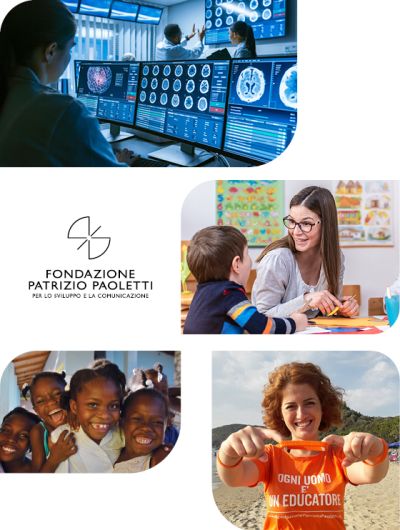
Patrizio Paoletti Foundation
20 years of dedicated commitment
It is a non-profit research organization that has been dedicated to the study of human functioning for 20 years. Through interdisciplinary research, the results of which are applied in education and teaching, the organization promotes the best of talents in children and adults. The Foundation, through its Research Institute for Neuroscience, Education and Didactics (RINED), studies how human beings grow, learn, experience emotion, and improve, with the aim of creating practical, immediate, innovative and effective tools that would support people to learn how to do, how to live in order to ‘be’ in a constantly changing world. Through its educational projects, the Foundation works so that every adult becomes more aware of his or her own resources, role and responsibility towards others and the planet; so that every child, in every part of the world, finds the right conditions to express his or her full potential.
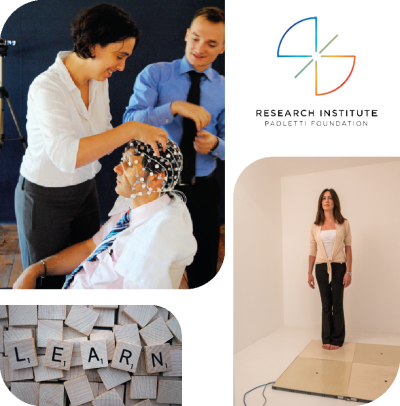
Research Institute for Neuroscience, Education and Didactics
RINED
The Research Institute for Neuroscience, Education and Didactics (RINED)is part of the Patrizio Paoletti Foundation (FPP), an Italian organization listed in the National Research Register of the Ministry of Education, University and Research (MIUR).
The main objective of RINED, and FPP in general, is to identify new theoretical and practical models of knowledge that promote cognitive, physical, psychological and emotional health and well-being from childhood to old age.

Fondazione Patrizio Paoletti per lo sviluppo e la comunicazione
Via Nazionale 230 – 00184 Roma
p.iva: 02730800543
Tel. 06 8082599 – Fax 06 92912688
fondazione@fondazionepatriziopaoletti.org


